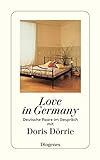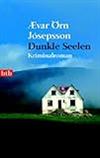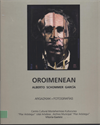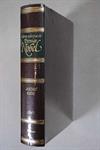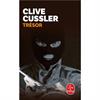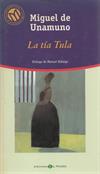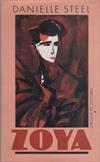
How to Talk About Books You Haven't Read
1 journaler for this copy...
This is a very intriguing and philosphical book and the title really doesn't do it justice! It is more a treatise on what it means to read, skim, forget books and how we construct our mental library.
Amazon Review
How to review books you haven't finished reading, 4 Feb 2008
By R. E. Manley "Traveller" (Ukraine and UK) - See all my reviews
(REAL NAME)
This review is from: How to Talk About Books You Haven't Read (Hardcover)
If Pierre Bayard is to be believed then I am the ideal person to review this book. I've only read just over half of it and, what is more, I read the original French version not the English translation. Whilst I am almost bilingual (I freely admit to the "almost") I would not claim to have appreciated all of the author's nuances (if any there be).
Bayard, by reference to other books, identifies situations in which someone has to talk about a book he has never read. One example from Graham Green's "Third Man" concerns an author of Westerns who finds himself in front of an audience having to talk about the works of a more intellectual writer with the same surname. He also presents the problem of discussing his colleagues' publications without having read them. (One example he does not give, at least as far as I have got, concerns books one has read in a foreign language which one does not perfectly understand.) He uses these examples to launch an examination of what "to have a read" a book actually means.
It is true that even immediately having finished a book few of us could summarise concisely the plots and sub-plots of a novel or the events and dates described in a history book. With time ones memory of a particular book will fade, perhaps even the memory of having read it. This then raises the question "Why read the whole book if you will only remember part of it.?"
It depends on why you read it. I was once in a bar in Eastern Europe with a group of people (two British, one Bulgarian and one Dutch) discussing Dostoevsky's "Crime and Punishment", as you do. All of us had read the book and each of us had a different view as to the main thrust of the novel. None of us had read it as part of our occupation (we were engineers and scientists). Had we been "professional" readers (and I flatter students by including them in that category) we would have gone on the internet, read a few critics and rehashed what they had said, and copied out enough quotes to teach or to pass an exam. In fact, all Bayard's examples, relate to "professional" readers; he ignores those of us who read for pleasure.
It is illuminating to compare the fate of Bayard (64,000 Google references) with that of Eric Ringmar (169 Google references) a lecturer at the LSE. He was reported (in The Spectator, 9 January 2008) as having been sacked for, among other reasons, admitting in his blog to not reading a book he was supposed to be teaching. It's not for nothing that the French have a word for "poseur" and the English do not.
For a more readable and equally thought provoking book on the meaning of reading I suggest "The Uncommon Reader" by Alan Bennett.
Post script. I've now finished the book. In the part I had read the author had introduced two concepts: the "interior library", of books an individual was aware of, and the "collective library", the corpus of literature which one might be expected to be aware of. In the latter part of the book he introduces a third concept: the "virtual library", those parts of the interior libraries of two people which overlap.
In the final chapter he develops his main thesis which is in order to talk about books you have not read it is necessary to draw on creative reserves within yourself and having done so you are well on the way to being a writer: of books people will talk about without reading perhaps!
Comment Comments (2) | Permalink | Was this review helpful to you? Yes No (Report this)
Amazon Review
How to review books you haven't finished reading, 4 Feb 2008
By R. E. Manley "Traveller" (Ukraine and UK) - See all my reviews
(REAL NAME)
This review is from: How to Talk About Books You Haven't Read (Hardcover)
If Pierre Bayard is to be believed then I am the ideal person to review this book. I've only read just over half of it and, what is more, I read the original French version not the English translation. Whilst I am almost bilingual (I freely admit to the "almost") I would not claim to have appreciated all of the author's nuances (if any there be).
Bayard, by reference to other books, identifies situations in which someone has to talk about a book he has never read. One example from Graham Green's "Third Man" concerns an author of Westerns who finds himself in front of an audience having to talk about the works of a more intellectual writer with the same surname. He also presents the problem of discussing his colleagues' publications without having read them. (One example he does not give, at least as far as I have got, concerns books one has read in a foreign language which one does not perfectly understand.) He uses these examples to launch an examination of what "to have a read" a book actually means.
It is true that even immediately having finished a book few of us could summarise concisely the plots and sub-plots of a novel or the events and dates described in a history book. With time ones memory of a particular book will fade, perhaps even the memory of having read it. This then raises the question "Why read the whole book if you will only remember part of it.?"
It depends on why you read it. I was once in a bar in Eastern Europe with a group of people (two British, one Bulgarian and one Dutch) discussing Dostoevsky's "Crime and Punishment", as you do. All of us had read the book and each of us had a different view as to the main thrust of the novel. None of us had read it as part of our occupation (we were engineers and scientists). Had we been "professional" readers (and I flatter students by including them in that category) we would have gone on the internet, read a few critics and rehashed what they had said, and copied out enough quotes to teach or to pass an exam. In fact, all Bayard's examples, relate to "professional" readers; he ignores those of us who read for pleasure.
It is illuminating to compare the fate of Bayard (64,000 Google references) with that of Eric Ringmar (169 Google references) a lecturer at the LSE. He was reported (in The Spectator, 9 January 2008) as having been sacked for, among other reasons, admitting in his blog to not reading a book he was supposed to be teaching. It's not for nothing that the French have a word for "poseur" and the English do not.
For a more readable and equally thought provoking book on the meaning of reading I suggest "The Uncommon Reader" by Alan Bennett.
Post script. I've now finished the book. In the part I had read the author had introduced two concepts: the "interior library", of books an individual was aware of, and the "collective library", the corpus of literature which one might be expected to be aware of. In the latter part of the book he introduces a third concept: the "virtual library", those parts of the interior libraries of two people which overlap.
In the final chapter he develops his main thesis which is in order to talk about books you have not read it is necessary to draw on creative reserves within yourself and having done so you are well on the way to being a writer: of books people will talk about without reading perhaps!
Comment Comments (2) | Permalink | Was this review helpful to you? Yes No (Report this)

